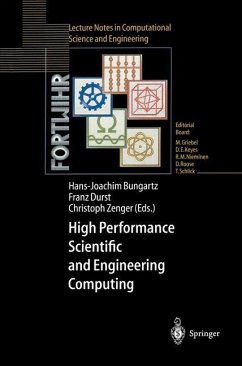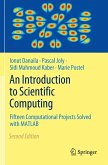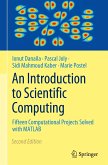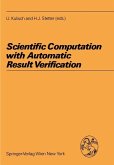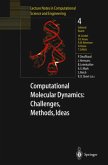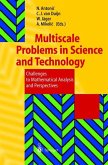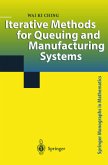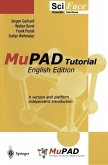This volume contains the proceedings of an international conference on high performance scientific and engineering computing held in Munich in March 1998 and organized by FORTWIHR, the Bavarian Consortium for High Performance Scientific Computing. The 38 contributions cover engineering applications for numerical simulation from the fields fluid flow, optimal control, crystal growth and semiconductor technology, as well as numerical simulation in astrophysics or quantum chemistry. In contrast to related collections, the reader gets a really interdisciplinary spectrum of the state of the art of selected topics of scientific computing with recent results of research groups from applied mathematics, computer science, engineering, physics and chemistry.
Since the creation of the term "Scientific Computing" and of its German counterpart "Wissenschaftliches Rechnen" (whoever has to be blamed for that), scientists from outside the field have been confused about the some what strange distinction between scientific and non-scientific computations. And the insiders, i. e. those who are, at least, convinced of always comput ing in a very scientific way, are far from being happy with this summary of their daily work, even if further characterizations like "High Performance" or "Engineering" try to make things clearer - usually with very modest suc cess, however. Moreover, to increase the unfortunate confusion of terms, who knows the differences between "Computational Science and Engineering" , as indicated in the title of the series these proceedings were given the honour to be published in, and "Scientific and Engineering Computing", as chosen for the title of our book? Actually, though the protagonists of scientific com puting persistin its independence as a scientific discipline (and rightly so, of course), the ideas behind the term diverge wildly. Consequently, the variety of answers one can get to the question "What is scientific computing?" is really impressive and ranges from the (serious) "nothing else but numerical analysis" up to the more mocking "consuming as much CPU-time as possible on the most powerful number crunchers accessible" .
Since the creation of the term "Scientific Computing" and of its German counterpart "Wissenschaftliches Rechnen" (whoever has to be blamed for that), scientists from outside the field have been confused about the some what strange distinction between scientific and non-scientific computations. And the insiders, i. e. those who are, at least, convinced of always comput ing in a very scientific way, are far from being happy with this summary of their daily work, even if further characterizations like "High Performance" or "Engineering" try to make things clearer - usually with very modest suc cess, however. Moreover, to increase the unfortunate confusion of terms, who knows the differences between "Computational Science and Engineering" , as indicated in the title of the series these proceedings were given the honour to be published in, and "Scientific and Engineering Computing", as chosen for the title of our book? Actually, though the protagonists of scientific com puting persistin its independence as a scientific discipline (and rightly so, of course), the ideas behind the term diverge wildly. Consequently, the variety of answers one can get to the question "What is scientific computing?" is really impressive and ranges from the (serious) "nothing else but numerical analysis" up to the more mocking "consuming as much CPU-time as possible on the most powerful number crunchers accessible" .

